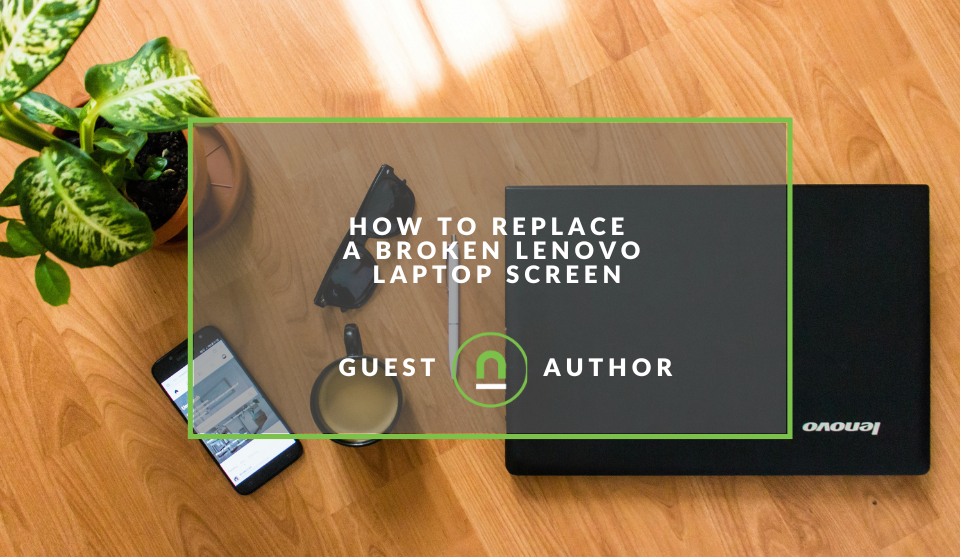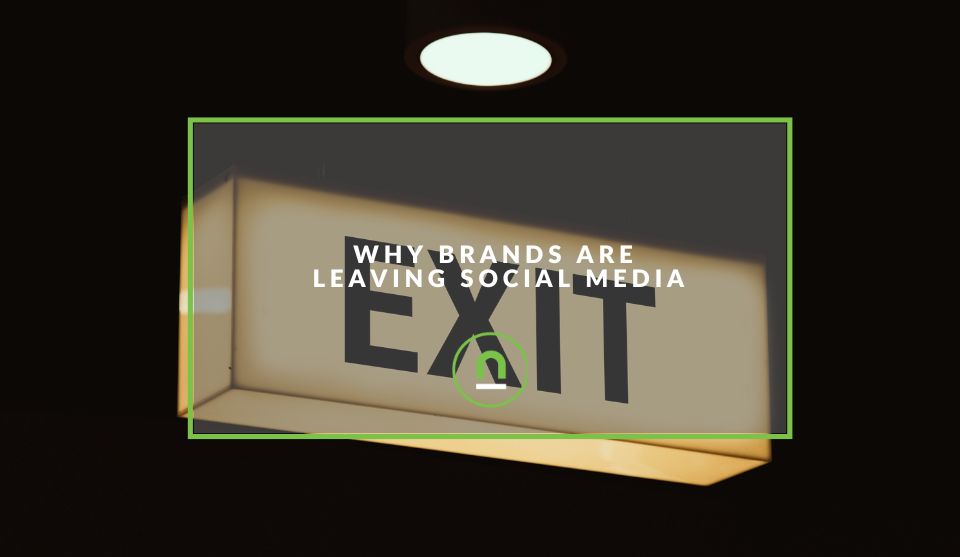Recent posts

Geek Chic
How to Replace A Broken Lenovo Laptop Screen
24 April 2025

Money Talks
Everything You Need to Know About SASSA Status Check
13 April 2025

Mind, Body & Soul
The Genetic Diversity of Cannabis Seeds
12 April 2025

Money Talks
How Small Businesses Can Leverage Blockchain Technology
02 April 2025
Popular posts
Extravaganza
Trending Music Hashtags To Get Your Posts Noticed
24 August 2018
Geek Chic
How To Fix iPhone/iPad Only Charging In Certain Positions
05 July 2020
Extravaganza
Trending Wedding Hashtags To Get Your Posts Noticed
18 September 2018
Money Talks
How To Find Coupons & Vouchers Online In South Africa
28 March 2019
Why Brands Are Leaving Social Media
23 May 2023 | 0 comments | Posted by Che Kohler in nichemarket Advice
Social media has become an essential part of our lives. We use it to stay connected with friends and family, to stay up-to-date on the latest news, and to find information about everything from products to restaurants. For businesses, social media has a labour of love; many realise that it can be a powerful tool for marketing and customer engagement, but few can fully leverage it correctly.
In the early days of social media, brands flocked to the platforms in droves. They saw the potential to reach a large audience with their messages, and they were eager to connect with potential customers in a more personal way.
Before algorithmic curation took over social feeds, this was the case, it was a free for all, and anyone could reach a wide audience by simply creating content. For a time, social media was a great success for brands. Brands were able to build relationships with customers, generate leads, and drive sales.
However, in recent years, the tide has begun to turn.
I've always had the habit of checking out a site, be that for personal use or business, and browsing their social profiles. I would look to their socials for any updates or complaints, and I started to notice that when visiting certain sites, many small businesses have chosen to delete their social media accounts.
They might still have an old link indexed in search or referenced on their site, but it sent me to a dead page, and the number of sites I find doing this is growing.
It seems brands and businesses are fed up with social media and quietly quitting, but why?
Brands see diminishing returns from social media.
As social media has become more crowded, it has become harder for brands to stand out. In addition, the algorithms of social media platforms have changed, making it more difficult for brands to reach their target audiences.
As a result, many brands are seeing diminishing returns from their social media investments. To retain the same reach and lead generation, you had to either double down on engagement or start adding a paid media budget to your social efforts.
Social media for brands became a pay-to-play service, and it turned many off competing on the platform. Coupled with the fact that super users like influencers were getting a better rub of the green by social media platforms, it only served to alienate brands and businesses further.
Brands find that social media is a waste of resources.
In addition to the challenges of reaching their target audiences, brands are also finding that social media is a waste of resources. The cost of social media advertising has skyrocketed, and the return on investment is often low.
In addition, social media can be a time-consuming and labour-intensive platform to manage, with brands forced to hire specialists, outsource to agencies or spend hours on social media hoping to generate leads or handle customer queries.
Why brands are leaving social media
As a result of the challenges and costs associated with social media, many brands are choosing to leave the platforms altogether. Some brands have found that they can achieve better results by investing in other marketing channels, such as search engine optimisation (SEO) or email marketing. Other brands have simply decided that social media is not worth the time and effort.
The rise of social media influencers
Social media influencers have become a powerful force in the marketing world. They have large followers of engaged followers, and they can generate a lot of buzz for brands. As a result, many brands are choosing to work with influencers instead of managing their own social media accounts.
The increasing popularity of private messaging apps
Private messaging apps, such as WhatsApp and Telegram, are becoming increasingly popular. These apps offer a more personal and secure way to communicate, and they are often used by consumers to communicate with friends and family. As a result, many brands are finding that they can reach their target audiences more effectively through private messaging apps than through social media.
The growing concerns about the impact of social media on mental health
There is growing concern about the impact of social media on mental health. Studies have shown that social media can lead to increased anxiety, depression, and loneliness. As a result, some brands are choosing to leave social media in order to protect their customers' mental health.
First-party data and direct contact
It's not only smaller brands and businesses giving social media the cold shoulder, but large players with millions of followers are calling it quits. In recent years high profile brands like Lush have tried to quit social media. In 2019, the company announced that it was fed up with fighting against algorithms and wanted to talk directly with its consumers.
Lush is not the only brand wiping out its social media presence; Balenciaga and Bottega Veneta are also taking a stand against it. Brands are now looking to build direct forms of communication, be that through chat apps and bots, native apps or PWAs, newsletters and CRM.
Why?
Because you have more control over how, when and where you reach your customers and a direct view of the engagement and cost to reach a customer that is not influenced by third parties.
What does the future hold for social media?
It is difficult to say what the future holds for social media. However, it is clear that the platforms are facing some challenges. The rise of social media influencers, the increasing popularity of private messaging apps, and the growing concerns about the impact of social media on mental health are all factors that could lead to a decline in the use of social media by brands.
Only time will tell what the future holds for social media. However, it is clear that brands need to be prepared for change.
Is leaving social media a death sentence
For some brands, leaving social media may be a wise decision; their time could be served on other business development activities or other channels that do provide a decent return on marketing spend. Not every business can generate leads from Instagrammable captions with photos or waste time turning dancing teens or twenty-somethings on TikTok into paid traffic.
In the past, it was a wise decision to have your business present on all social media, but today brands are better off picking a specific social media service and focusing their efforts. If YouTube works for your brand, stick exclusively to it. If you are fashion-based, Instagram is your best bet.
You don't have to go cold turkey but become strategic around your social spend and content creation.
For others who have invested their fair share in time and money, leaving it could be a death sentence. If a brand's target audience is active on social media, then leaving the platforms could alienate customers and hurt sales. So you'll be forced to play the game and submit to whatever algo changes social media platforms push in the future.
Social media can be a valuable tool for customer service and crisis management. If a brand leaves social media, it may be more difficult to respond to customer complaints or manage a crisis. If you do get plenty of queries via social media, you might want to keep it up for that purpose. If not, you can shut down and point people to your email or live chat on your site should they require feedback or wish to make contact with you.
Social isn't as critical as we think.
The decision of whether or not to leave social media is a complex one. There are many factors to consider, such as the brand's target audience, its marketing goals, and its budget.
Ultimately, the decision of whether or not to leave social media is up to each individual brand and if it is worth having a half-baked social media presence spread across all platforms, a focused one, or none at all.
Contact us
If you would like us to improve your social media, have an audit or strategy done on social media potential for your rband or want to know more about digital marketing for your business, then don’t be shy. We’re happy to assist. Simply contact us
Are you looking to promote your business?
Businesses can create their free business listing on nichemarket. The more information you provide about your business, the easier it will be for your customers to find you online.
Registering with nichemarket is easy; all you will need to do is head over to our sign-up form and follow the instructions. If you require a more detailed guide on how to create your profile or your listing, then we highly recommend you check out the following articles.
Recommended reading
If you enjoyed this post and have time to spare, why not check out these related posts and dive deeper down the rabbit hole that is Instagram marketing.
- 6 Instagram Marketing Tips For A Simple Strategy That Works
- Mind-Blowing Neuromarketing Tricks for Your Instagram Content
- How To Find Suitable Instagram Influencers For Your Brand
- 15 Tips for Improved Engagement With Instagram Stories
- Why Your Instagram Ads Are Not Converting or Working
- Does The Follow & Unfollow Method Still Work On Instagram
You might also like
The Genetic Diversity of Cannabis Seeds
12 April 2025
Posted by Alina Jones in Mind, Body & Soul
A look into the South African heritage of cannabis growing and how the country has taken the plant in terms of growing it into a viable industry & th...
Read moreMastering Personalization in Digital Marketing
31 March 2025
Posted by Željka Ristic in Industry Experts
We look at the best content marketing tools to boost engagement and growth and build sustainable marketing campaigns that drive users to take action
Read more{{comment.sUserName}}
{{comment.iDayLastEdit}} day ago
{{comment.iDayLastEdit}} days ago
 {{blogcategory.sCategoryName}}
{{blogcategory.sCategoryName}}

